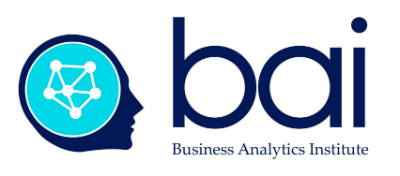What would better decisions mean for you and your customers?
Whether we are reading about politics, economics or society, each day seems to bring its load of seemingly poor decision-making. Jack Zenger and Joseph Folkman recently outlined several reasons why decision-makers fail including negligence, lack of anticipation, indecisiveness, and isolation.[1] Are fake news, faked facts, and manipulated opinions the cause or the result of poor decisions? Most importantly, what can be done to improve our decision-making skills for our organizations, our customers, and our careers?
Taking better decisions, rather than producing or crunching the data, is the key to better management. We live in a time and space in which the data and facts are omnipresent. We have produced more data in the last two years than in the previous history of mankind.[2] Economists like Klaus Schwab suggest that we are in the presence of a fourth industrial revolution in which value will be defined by our ability to capture and to analyze this vast amount of data.[3] To date, the data doesn’t yet support the contention that this revolution has led to better decisions. Business analytics is about transforming data into action that addresses our fundamental political, economic, and social challenges.
What does improving decision-making entail? In decision science, we learn that the major challenges to decision-making are perceptions of the complexity, ambiguity, and uncertainty of the environment in which we take decisions. In the cognitive sciences, we are taught that our pre-conceptions and prejudices both distort how we see the problem, and limit our ability to propose innovative solutions. In management schools, we are trained to recognize that there are distinct types of problems and that each requires unique approaches that can’t be solved in a uniform manner. Finally, in business, we sense that the culprit isn’t just our own decisions, but often those taken around us.
Although machine learning is often marketed as a panacea, it’s nothing more than a technological tool that can be used to think about the problems at hand. Supervised learning represents one specific type of problem in which we know that the answer is in the data, the challenge is in understanding how to deduce the answer. Unsupervised learning encapsulates a second type of challenge in which we don’t know what the answer is, but we believe that studying the data will allow us to induce patterns of potential responses. Semi-supervised learning represents a third type of problem in which we know the answer, but we are trying to calibrate decision-making processes to produce more reliable results. In all cases, technology provides nothing more than a mirror of how we think about the challenges around us.
How can the study of business analytics help us become better decision-makers? Business analytics is a three-step process designed to help people make better decisions in the context of their work. To begin with we need to scan the environment (physical and digital) to understand the type and the quality of data with which we have to work. The second step is applying the correct methodology to explore the data and formulate solutions in response to the types of problems we are trying to solve. Finally, the third step is to translate the data into stories that will motivate our teams and communities to take the appropriate actions. In a nutshell, business analytics is less about theory than it is about practice, integrating these decision-making fundamentals into the way we work.
The practice of business analytics is what the Business Analytics Institute is all about. In our summer school in Bayonne, as well as in our Masterclasses throughout Europe, the mission isn’t to tell managers what to do, but to help them learn to take better decisions. To make sense of business analytics, the Institute focuses on five aspects of business: working in the digital age, managerial decision making, machine learning, community management, and visual communications. In the coming months the Institute will be offering managers four settings to learn about decision-making : online learning bytes, the Masterclasses, ExecEd courses offered through the selected business schools and universities, and the corporate certified Summer School. What would better decisions mean for you and your customers?


